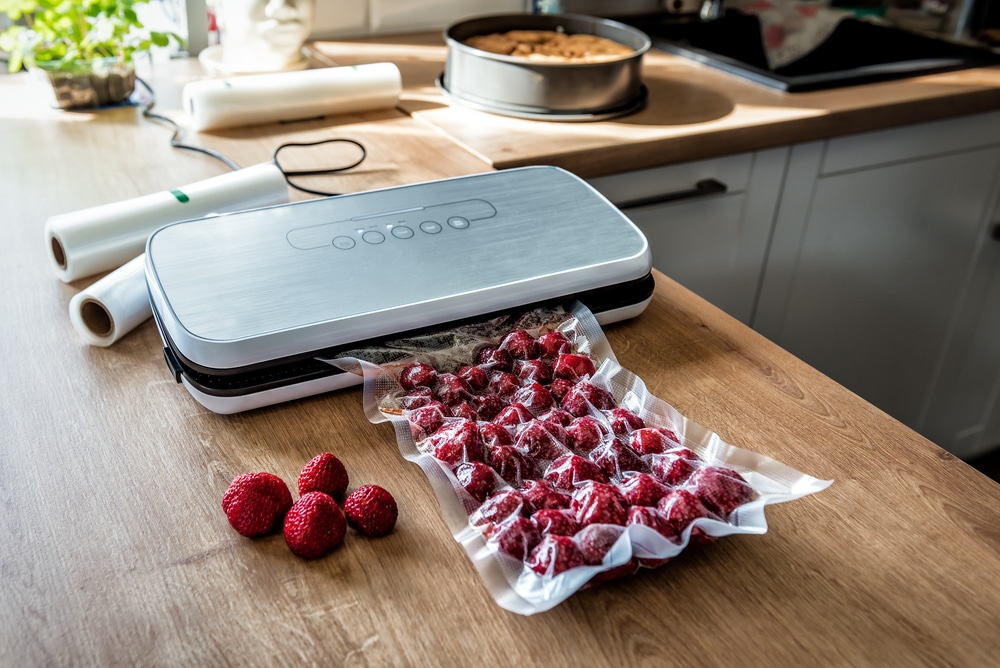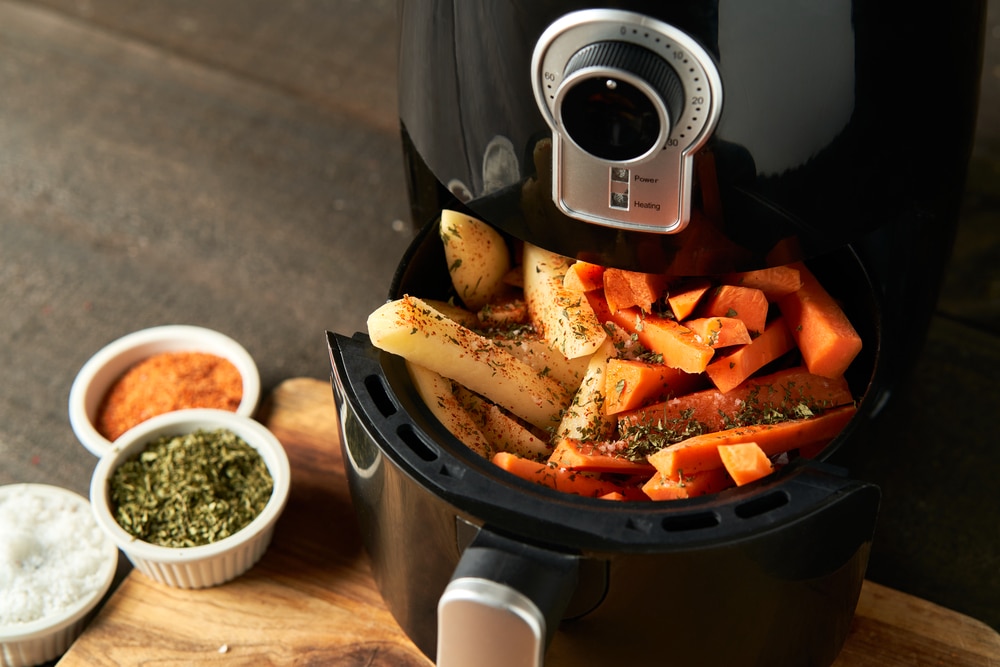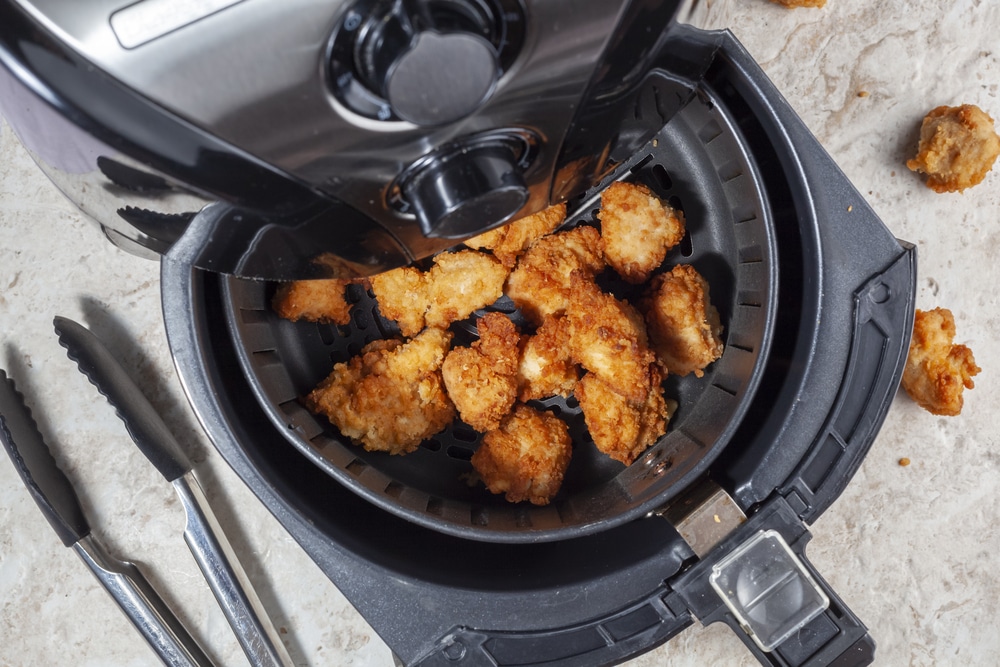Last Updated on
Are you curious to know how long vacuum sealed food lasts? Do you want to make sure your groceries stay fresher for longer, but don’t know the best way of doing so? If so, then look no further. Vacuuming is an ideal kitchen aid to maintain edibles fresh and scrumptious for days. But just how long does vacuum sealed food last? In this blog post, we’ll explore tips and tricks for maximising shelf life, so if you’re interested in learning more about preserving produce with a vacuum sealer read on…
Table of Contents:
- How Long Does Vacuum Sealed Food Last?
- Tips for Maximising Shelf Life
- Vacuum Sealing: A Must-Have Kitchen Tool?
- Conclusion
How Long Does Vacuum Sealed Food Last?
Vacuum-sealing edibles is a superb means of safeguarding and preserving them for prolonged periods. Vacuum sealing removes the air from around the food, preventing spoilage due to oxidation and dehydration. This process can extend the shelf life of many foods by up to five times their original expiration date.
Vacuum sealing can help keep food fresh for longer, yet there are some pointers to ensure it stays edible as long as possible. Let’s take a look at how to maximise the longevity of vacuum sealed food.
Tips for Maximising Shelf Life
Vacuum sealing is an excellent way to store food and maximise its shelf life. Vacuuming your edibles can be a great technique for keeping them fresh and delicious, from veggies to proteins. But it’s important to understand how long vacuum sealed food will last before you start using it.

The first step in maximising the shelf life of your vacuum sealed food is proper storage techniques. Vacuum sealed bags should be stored in a cool, dry place away from direct sunlight or heat sources like ovens or stoves. This helps prevent spoilage due to temperature fluctuations that can occur when storing food in warmer environments. Additionally, make sure all seals are tight on the bag before storing them away so no air can get inside and cause bacteria growth or other contamination issues.
Temperature control is also key when it comes to extending the shelf life of vacuum sealed foods as well as preventing spoilage caused by bacteria growth or oxidation reactions with oxygen molecules present in the air around us. For best results, try keeping your vacuum-sealed foods at temperatures below 40°F (4°C). If possible, use a refrigerator set at this temperature range for optimal preservation of these items over time.
It’s also important to remember that different types of foods have varying levels of durability when stored under vacuum seal conditions – some may only last up to three months, while others may remain safe for consumption up until one year after being sealed. To ensure safety, check expiration dates on packaging labels prior to consuming any type of preserved item regardless if they were previously frozen or not – just because something was frozen doesn’t mean it won’t expire eventually.
Finally, don’t forget about rotation:
Rotate older items out first so they don’t become too old while newer ones stay fresher longer. Keeping track of what you have stored away can help you keep better tabs on expiration dates and avoid wasting money on spoiled goods down the line – always double check those labels.
Vacuum Sealing: A Must-Have Kitchen Tool?

It’s especially useful if you’re looking to store large amounts of food or preserve leftovers. Vacuum-sealed edibles can stay edible for up to five times longer than their non-vacuumed equivalents, rendering it a valuable asset in the culinary space.
But is vacuum sealing worth the investment? Absolutely. A good quality vacuum sealer will pay for itself over time by helping you save money on groceries and reduce waste from spoiled food. Plus, they come in handy when prepping meals ahead of time or freezing items that would otherwise spoil quickly.
When choosing a vacuum sealer, there are several factors to consider such as size, price point, and features like automatic shutoff and adjustable suction settings. If space is limited in your kitchen, opt for a smaller model with fewer bells and whistles; these are usually more affordable too. For larger kitchens with plenty of countertop space, look into models with additional features like pulse vacuuming or marinating capabilities – these can help take your cooking game up a notch.
Overall, investing in a good quality vacuum sealer can be extremely beneficial if used correctly. A vacuum sealer can be an invaluable asset, enabling you to prolong the lifespan of edibles while simultaneously cutting back on squandering and economising. Therefore, it is worth considering giving one a try today.
Conclusion
Vacuum packing is an efficient way to keep edibles fresh for a more extended period. Utilising the correct approaches and equipment, you can boost the life expectancy of your vacuum-sealed food by up to fivefold. So if you’re looking for an easy and effective way to make sure your food lasts as long as possible, then vacuum sealing is definitely worth considering. And with that in mind, it’s safe to say that when it comes to preserving food, knowing how long does vacuum sealed food last is key.
Paul is the type of person who never met a problem he couldn’t fix. He can always be found tinkering with something in his house, even if it isn’t broken! His tips and tricks are often shared on our site. He’s the one you call when something breaks because he has been known to improvise fixes for everything from leaky faucets to malfunctioning dryers.



